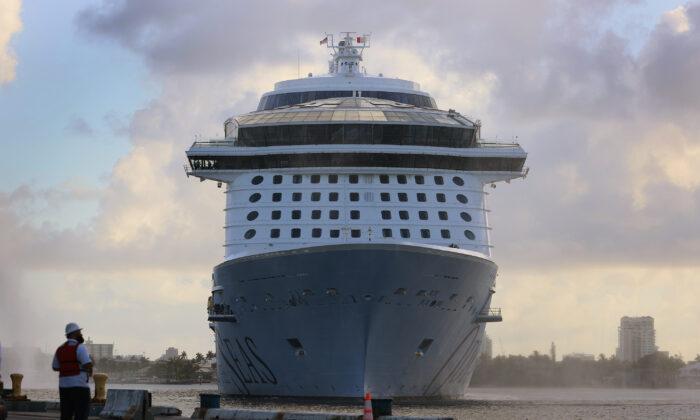The U.S. Centers for Disease Control and Prevention (CDC) has relaxed its warning against going on cruises but is still suggesting people avoid travel on cruise ships unless they’ve been vaccinated against the virus that causes COVID-19.
“CDC recommends that people who are not fully vaccinated avoid travel on cruise ships, including river cruises, worldwide,” the agency said in its updated guidance. “Since the virus spreads more easily between people in close quarters aboard ships, the chance of getting COVID-19 on cruise ships is high. It is especially important that people who are not fully vaccinated with an increased risk of severe illness avoid travel on cruise ships, including river cruises.”
People are at a higher risk of getting a severe case of COVID-19 if they’re older or have an underlying medical condition like chronic kidney disease, obesity, or a serious heart condition.
Even those who are fully vaccinated should get tested one to three days before going on a cruise and again three to five days after their trip, according to the CDC.
In addition to the testing, the agency is recommending passengers who are not fully vaccinated quarantine for seven days after returning from their trip, and an additional three days if they opt against a test.
People who fly to the United States are required to have a negative COVID-19 test result no more than three days before travel, or documents proving recovery from the disease in the three months before they board their flight, under current emergency rules.
The agency said that its researchers have “found that people can continue to test positive for up to 3 months after they had COVID-19 and not be infectious to others.”
U.S. authorities say the three authorized COVID-19 shots being administered across the country help prevent contracting COVID-19, and helps diminish the chances of getting a severe case if one does suffer a so-called breakthrough case, or an infection despite vaccination.
People who travel on cruise ships were also told to social distance, or stay at least six feet from anyone not traveling with them, wear a mask, wash their hands often, and avoid touching their eyes, nose, and mouth.
Celebrity Cruises is planning a voyage leaving Port Everglades with all vaccinated passengers, with Carnival planning sailings starting in early July but also reserved for the vaccinated.
The CDC is requiring trial voyages give over proof to its officials that 95 percent of passengers and crew members on each sailing are fully vaccinated.





